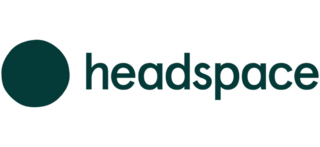External Coverage| June 2020
Headspace Secures Additional Funding
Article by Mary Ann Azevedo via Crunchbase
The Orange Dot, better known as Headspace, has closed on $47.7 million in equity funding, according to a filing with the U.S. Securities and Exchange Commission.
I reached out to the mindfulness and meditation startup for more information and it confirmed that the financing is an extension to a Series C that closed in February. Indeed, the filing comes nearly exactly four months after Headspace secured $93 million in a Series C round that we reported on here. That financing included $53 million in equity and $40 million in debt.
This latest infusion brings Santa Monica, California-based Headspace’s total venture and debt raised since its inception in 2010 (Was it really founded a decade ago?!) to about $216 million, according to Crunchbase data. The company declined to disclose at what valuation the Series C was raised.
In an email statement, Headspace said: “We had always planned an extension of our Series C. This extension is now complete and was led by existing investors, adding $47.7 million to the $53 million raised in February, bringing the total equity funding to $100.7 million for our Series C.”
All Series A, B, and C lead investors participated, according to the company. Some of those backers include Blisce/, Waverley Capital, Times Bridge (the global investments and partnerships arm of The Times Group of India), The Chernin Group, Spectrum Equity and Advancit Capital.
To rise above the hype around meditation, Headspace claims to be “the most science-backed digital mindfulness product in the market.” As an example of that, the company said in February it was conducting over 70 clinical research studies with institutions such as Carnegie Mellon University and Stanford University.
Over the years, it’s branched out from its consumer app into different product lines including “Headspace for Work,” its B2B segment that counts Starbucks, Adobe, Hyatt and GE among its 600 enterprise customers. It’s also offering “Headspace Health,” an effort to integrate mindfulness into health care. In general, the company says its goal is to help users apply mindfulness to improve their health via content around stress, anxiety, sleep, focus and other things.
** Growth**
Since its founding, Headspace said as of February it had experienced over 62 million downloads in 190 countries and had more than 2 million paid subscribers. No word yet on if it’s seen a spike in users due to the COVID-19 pandemic.
In addition to growing its direct-to-consumer business, Headspace said it will continue to invest in its Headspace for Work segment, which has seen its revenue double year over year from 2017 to 2018 and most recently in 2019. It also plans to continue putting money into its health care segment.
In 2019, the company launched localized versions of the app in French and German, and appointed former Apple executive Renate Nyborg as head of its European division to lead expansion in that region. Also last year, Headspace launched in Latin America with versions in Spanish and Brazilian Portuguese. It expanded into Asia through strategic relationships with partners such as The Times of India. In February, the company said it planned to use its new capital in part to continue expanding internationally.
Of course, Headspace is not alone in the meditation app space. Last year, Calm announced the close of an $88 million Series B round that propelled it into unicorn status with a $1 billion valuation. In July, it announced a $27 million extension to that round.
Article by Mary Ann Azevedo via Crunchbase
Content contained in this blog post is not intended to and does not constitute investment advice. Your use of the information in this blog post and materials linked is at your own risk. Spectrum Equity does not make any guarantee or other promise as to any results that may be obtained from using this content. No one should make any investment decision without first consulting his or her own financial advisor and conducting his or her own research and due diligence. Past performance is not indicative of future results, and there is a possibility of loss in connection with an investment in any Spectrum Fund. To the maximum extent permitted by law, Spectrum Equity disclaims any and all liability in the event any information, commentary, analysis, and/or opinions prove to be inaccurate, incomplete or unreliable, or result in any investment or other losses. The specific companies identified above does not represent all of Spectrum’s investments, and no assumptions should be made that any investments identified were or will be profitable.

